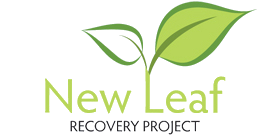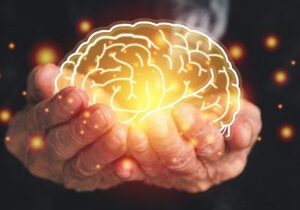The Role of Therapy in Addiction Recovery?

Addiction isn’t just about drugs or alcohol. Addiction is deeply rooted in pain, past trauma, social connections, memories and a who le lot more.
Often, relying on alcohol or a substance is a way to block out the noise inside, and so effective recovery needs to strike at the heart of both the emotional, as well as the physical aspects, of addiction.
That’s where therapy steps in – therapy is one of the most powerful tools an individual can use to empower themselves to make a sustained, long-term recovery from addiction.
In this blog, we’ll breakdown the role that professional therapy plays in addiction recovery, why therapy matters, and highlight the proven therapies on offer here at New Leaf Recovery.

Why Therapy Matters in Recovery
For most people, addiction is deeply rooted in mental health challenges, stressful life circumstances, grief, relationship issues, and other emotional challenges. Therapy helps you explore the roots of these issues, dig into the ‘why’, and gently begin the process of healing.
Professional therapeutic treatment gives structure and safety to what can feel like a messy, unpredictable journey. It gives people space to speak, to be heard, and to make sense of the chaos.
Call on 0300 999 0330 To Start Your RecoveryThe Role of Therapy in Addiction Recovery: The Benefits
In short, therapy helps to provide the core building blocks that helps individuals make fundamental changes to their lives. Whether it’s helping them to face up to past trauma, providing them with techniques for channelling their emotions, or helping them to build better life habits, therapy strikes at the core of addiction.
1. Therapy Helps you to Understand the ‘Why’
Addiction isn’t just a series of bad decisions. It’s a coping mechanism, often learned over time. Therapy helps uncover the reasons behind it. Is it trauma-based? Related to loneliness or social pressure? Is it grief-related? Once those roots are understood, the process of healing can begin.
2. It Equips You With Tools and Techniques That Work
Therapies like Cognitive Behavioural Therapy (CBT) and Emotional Freedom Techniques (EFT) aren’t just buzzwords. They’re practical, proven methods in addiction recovery that help individuals reshape how they think and react to the world around them.
For instance, CBT teaches you how to spot negative thought patterns and replace them with healthier ones. EFT, on the other hand, combines talking with physical techniques to release emotional blockages.
These tools are more than just theory-they’re usable, daily strategies for managing cravings, handling stress, and navigating tricky relationships.
3. It Allows You to Build a Strong Support Network
Group therapy plays a massive role in many of our clients’ recovery journeys. There’s something very liberating about sitting in a room with people who’ve lived through very similar experiences to your own. You don’t have to explain everything, and you don’t always have to talk. Often, merely sitting in these sessions can have a monumental, therapeutic impact.
At New Leaf, our group sessions provide space for that connection. Some clients say that hearing someone else’s story was the moment everything shifted for them. Others say simply knowing they’re not alone gave them the courage to keep going.
4. It Can Help You to Rebuild Relationships
Addiction often damages relationships. Whether it’s subtle withdrawing from friends, family or partners, or outright separation – intended or otherwise – this can lead to personal guilt, resentment, or grief about these lost connections.
Therapy can help you work through these struggles, and help you to re-claim these lost relationships. This is achieved not just through forgiveness, but through understanding, boundary-setting, and learning how to communicate honestly again.
5. It Can Effectively Address Mental Health Issues
Whether it’s depression, anxiety, PTSD-many people struggling with addiction are also simultaneously facing mental health challenges. In fact, we often see a strong interplay between the two here at New Leaf – with one typically fuelling the other. Therapy allows these conditions to be addressed head-on.
This is vital because ignoring the mental health side of things often leads to relapse. A good therapist won’t just help you stay sober-they’ll help you feel stronger, more grounded, and more in control of your own mind, helping you to tackle both addiction and the mental struggles that may be fuelling it.
Therapy Isn’t a One-Size-Fits-All Solution
A common misconception is that everyone must undergo the same kind of therapy in order to overcome addiction, leaving many to feel like therapy wouldn’t suit them or their personality. However, this is far from the case. Here at New Leaf Recovery, we’re keenly aware of the fact that everyone is different, and so everyone needs a unique approach that works for them and their individual life circumstances.
We understand the importance of listening to people and understanding exactly what it is that is backgrounding their unique story.
It is only by understanding this journey that a tailored therapeutic programme can be created that works for individuals, empowering them to take back control of their lives. That’s why we offer a range of different therapeutic treatments here at New Leaf which can be customised around the unique needs of individuals to create an entirely bespoke treatment programme:
Types of Therapy Available at New Leaf Recovery
We’re proud to offer a diverse range of therapies here at New Leaf, each tailored to support individuals in different ways:
- 1-to-1 Therapy: Personalised sessions that allow for deep exploration of emotional and psychological challenges. Great for those who prefer privacy or need to work through specific issues.
- Counselling: A shorter-term, present-focused option. Perfect for people who want immediate support, emotional guidance, and coping strategies.
- Group Therapy: A powerful setting for connection, accountability, and shared learning. Helps break down isolation and normalises the recovery experience.
- Movement Therapy and Art Therapy: Ideal for those who struggle to express themselves through words alone. Creative and physical outlets can help unlock emotions that are difficult to verbalise.
- CBT & EFT: Structured therapies that focus on identifying and transforming harmful thought patterns, developing emotional resilience, and building self-awareness.
- Meditative Therapy: A calming, mind-clearing practice designed to bring individuals into the present, reduce anxiety, and develop mindfulness in everyday life.
All our therapies are run by qualified, compassionate professionals who are dedicated to supporting you, not just as a client, but as a person.
Different combinations of these therapies can allow the individual to empower themselves to reclaim control of their lives and put in place the necessary building blocks for sustained, lasting recovery.
Addiction recovery isn’t just about stopping the use of substances. That’s only the beginning. The real work begins when you start to create a life that no longer needs drugs or alcohol. And that’s exactly where therapy becomes vital. It doesn’t just help in the early stages of recovery-it lays down the solid, lasting foundations needed for a healthier future.
Therapy provides individuals with core building blocks. These are the fundamental pieces that support real, lasting change-tools for self-awareness, emotional regulation, communication, and connection:
Healthier Coping Mechanisms
Many people turn to drugs or alcohol because they don’t know how else to cope. Therapy, however, teaches people new ways to manage those feelings-ones that don’t rely on self-destruction.
Techniques learned in sessions-such as grounding, breathing exercises, reframing negative thoughts, or simply learning how to sit with difficult emotions-become powerful coping mechanisms. These aren’t just useful during recovery; they’re life skills.
Emotional Awareness and Regulation
One of the biggest breakthroughs many people experience in therapy is learning to regulate and channel their emotions. For those in recovery, emotions can feel unpredictable and overwhelming. But therapy creates a safe environment for exploring and understanding them.
Over time, individuals begin to recognise the patterns behind their reactions, and start to develop the techniques for properly processing and channelling their emotions.
This emotional regulation becomes one of the most powerful assets in long-term recovery, helping individuals to respond to life in a controlled manner, rather than always reacting to it.
Ongoing Support and Connection
Therapy doesn’t just offer strategies-it also offers genuine human connection and support.
At New Leaf, we hear time again how the connections formed in therapy have gone on to become lifelines in long-term recovery. Even once treatment has ended, many people continue to attend meetings, stay in touch with peers, or return to therapy when needed.
Rewiring Habits and Thought Patterns
Addiction isn’t just a behaviour-it’s a series of habits often repeated for years. These habits are often mental as well as physical. Whether its uncontrollable cravings, negative self-talk, or choosing to hang around with the wrong crowd, therapy can help identify and replace these patterns with healthier ones.
CBT, for instance, teaches you how to challenge the belief that you’re ‘not good enough’, helping you to spot the early warning signs of a downward spiral and interrupt it with a healthier thought or action. This rewiring takes time, but it’s at the heart of long-term sobriety. Because if you can change how you think, you can change how you live.
Remember: recovery is always possible. With the right support, the right tools, and the right team around you, things can change. Therapy won’t make everything perfect, but it will help you understand yourself, rebuild your life, and create a brighter future.
To learn more about our bespoke therapies and range of treatment options, get in touch with our friendly team today, and take the first step towards positive, lasting change.
The Role of Therapy in Addiction Recovery: The Long Term
Start Your Recovery Journey with New Leaf Today
Call Us Today: 0300 999 0330Receive a Free Call Back
"*" indicates required fields
A Complete Recovery Journey. From your initial enquiry, all the way through treatment and beyond with ongoing support, New Leaf Recovery are there to guide and support you.
New Leaf offers a complete journey of treatment, from initial detoxification and rehabilitation to ongoing support, including aftercare, family support, and beyond into long-term recovery.
Getting the right accommodation enables us to provide the right backdrop for our recovery methods. Any form of rehabilitation needs to happen in a safe, comfortable, secure and friendly environment.
Receive a Free Call Back
"*" indicates required fields










